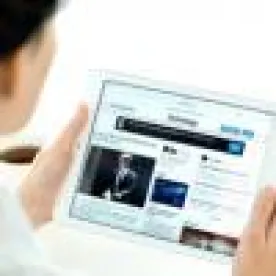In 1989, English scientist Tim Berners-Lee invented the World Wide Web. This invention would mark the beginning of the Information Age – a period of human history that has shifted the Industrial Revolution’s industrialization-focused economy to a “knowledge economy” based on information computerization. In 2017, we are still in the midst of the Information Age. The increased popularity of smart phones, tablets, and personal computers has put information at our fingertips. However, this information cannot always be trusted or vetted for accuracy.
For lawyers, this access to information presents an interesting dilemma. On one hand, readily available information, if reliable and accurate, assists the uncovering of the truth, the whole truth and nothing but the truth. On the other hand, unverifiable and unreliable information that comes in at trial presents a real threat to the veracity and legitimacy of the legal process. These competing issues recently came to a head in Kace v. Liang, 472 Mass. 630 (2015), where the Supreme Judicial Court addressed whether select pages from the websites of John Hopkins Hospital and the Mayo Clinic were reliable enough so as to qualify for the “learned treatise” exception to the hearsay rule.
Rule 801 of the Federal Rules of Evidence (FRE) bars the admission of hearsay – out-of-court statements used by a party to prove the truth of the matter asserted in those statements. Courts will bar hearsay when such statements do not conform to the reliability standards that we require of witnesses who testify in court. FRE 803(18) makes an exception to the hearsay rule in regard to “learned treatises” – writings and articles pertaining to specialized areas of knowledge and which are authored by experts in the field. FRE 803(18) allows statements from learned treatises to be read into evidence so long as the publication is established as a reliable authority (by the testifying expert’s admission, by another expert’s testimony, or by judicial notice) and the statement is called to the attention of an expert witness on cross-examination or relied upon by the expert on direct examination. Although learned treatises are clearly hearsay, courts have reasoned that these documents possess unique credibility characteristics compared to other hearsay documents (for example, the authors would not have a motive for being biased in creating these treatises and these materials would be subject to peer review by others experts in their field).
Kace v. Liang involved a wrongful death action on a medical malpractice claim against Dr. Liang. The decedent, Jeffery Kace, had previously visited the emergency room where he treated with Dr. Liang. Plaintiff alleged that during this emergency room visit, Kace showed signs of viral myocarditis and that Dr. Liang’s failure to recognize these symptoms and treat the condition resulted in Kace’s death. During cross-examination at trial, plaintiff’s counsel presented Dr. Liang with two website pages regarding viral myocarditis: one from John Hopkins and the other from Mayo Clinic. The author of these website entries was not apparent and the pages were undated. Furthermore, though Dr. Liang confirmed that he was familiar with both institutions, and though he admitted that the symptoms for viral myocarditis listed on these webpages were accurate, he stated that he was not familiar with those institutions’ website pages as they particularly pertained to viral myocarditis. Despite objections from Dr. Liang’s attorney, Kace’s counsel was permitted to read these webpages into evidence. The jury later held that Dr. Liang had been negligent.
On appeal, the Supreme Judicial Court of Massachusetts ruled that the website pages did not fall under the learned treatise exception as set out in the Massachusetts Guide to Evidence § 801(18)(B) (the relevant parts of this rule of evidence mirror the relevant aspects of FRE 803(18)). In so holding, the court acknowledged that the learned treatise exception did not apply because Dr. Liang was not testifying in an expert capacity. Additionally, the court took issue with the fact of the anonymity of the authors for both website pages. The court did not shut the door on the learned treatise exception as applied to internet materials, implying that web pages that had been identified and deemed reliable could be admissible under the learned treatise exception.
Thus, the admission of internet publications as learned treatises can depend on whether the web postings can be authenticated. Authentication is nothing new: and it involves first ensuring that the proposed web evidence “is what it purports to be” (pursuant to Federal Rule of Evidence 901); then, meeting the requirements of FRE 803(18) to establish the webpage as a reliable authority. Practitioners should note that judges may apply more skepticism toward internet evidence than evidence from traditional learned treatises, so the more information that authenticates the website, the better chance that it can fall under the learned treatise exception.




 />i
/>i
